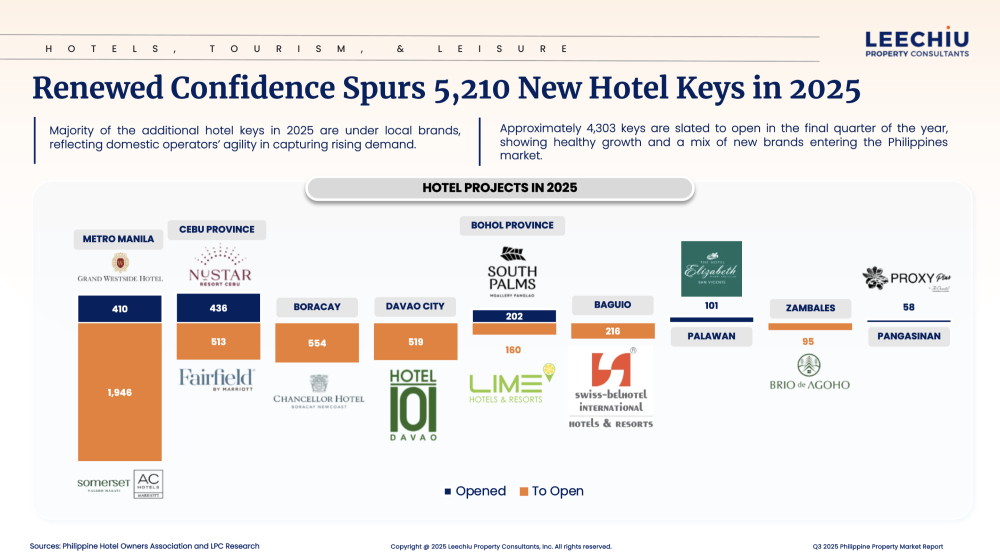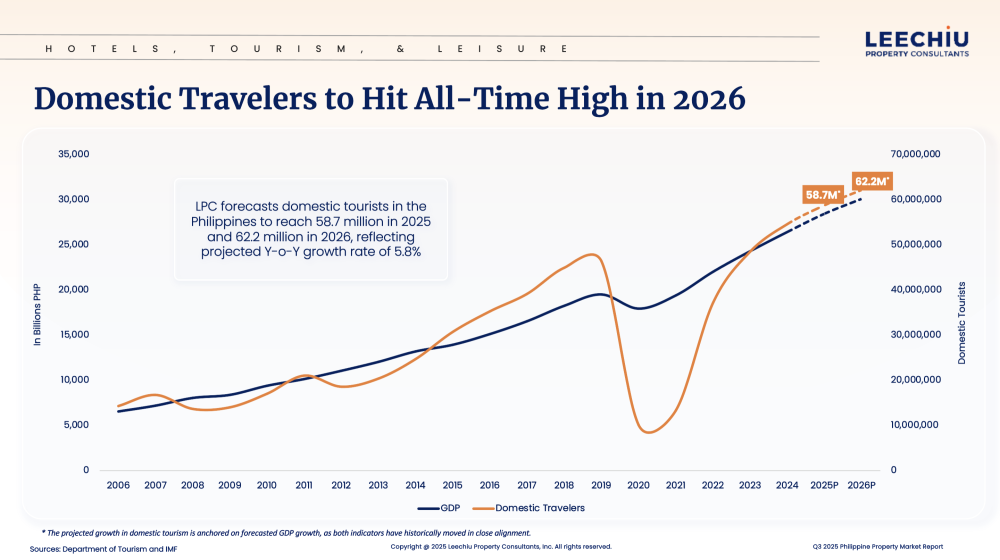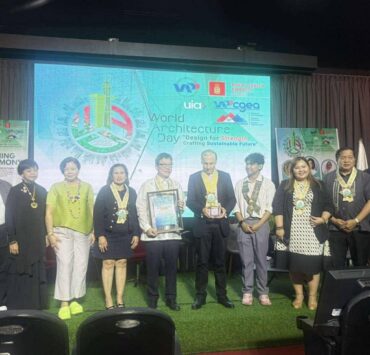A turning point for tourism: Why long-term leases could shape the PH’s next decade of growth

The Philippine tourism sector is entering a period of renewed stability and long-term opportunity.
After years of gradual recovery, the industry is gaining momentum, supported by steady domestic travel and a policy reform that is reshaping how investors view tourism and hospitality in the country.
Domestic travel is expected to hit 58.7 million tourists in 2025 and rise further to 62.2 million in 2026, in line with a strong economic outlook. The economy is projected to grow by 7.63 percent this year and 5.8 percent in 2026, creating a favorable environment for travel, spending, and investment.
This consistent demand highlights how local tourism has become an essential part of the country’s broader economic resilience.
Building investor confidence
The passage of the 99-Year Land Lease Law (Republic Act No. 12252) marks a significant milestone for tourism and real estate investment.
By extending foreign land leases from 50 years to nearly a century, the law provides greater security for developers planning large-scale resorts, leisure estates, and hospitality projects that require long investment horizons.
This policy brings the Philippines in line with other regional markets such as the Maldives, where extended lease terms have strengthened investor confidence in tourism-related developments. It also demonstrates the government’s commitment to long-term partnerships that balance growth with sustainable development.
This alignment between policy and market fundamentals positions tourism as one of the country’s key investment sectors. Longer lease terms allow investors to match project timelines with financing cycles, improving the viability of large-scale developments that contribute to local employment and regional growth.
A stable growth driver
While international arrivals continue to recover, it is domestic tourism that remains the main source of stability for the sector.
Over the past two decades, domestic tourism spending has consistently outpaced GDP growth, reflecting the strength of the Filipino travel market even in challenging conditions.
This solid foundation has encouraged steady expansion in hospitality supply. This year, a total of 5,210 new hotel keys are expected to be added nationwide, with more than 4,300 scheduled for completion before the end of the year. Most of these developments are led by local operators and developers, who have demonstrated the ability to respond to shifting travel patterns and the evolving needs of domestic travelers.
Key destinations such as Cebu, Boracay, Davao, and Palawan continue to see new investment in hotels and resorts, catering to local and international visitors. This growth reflects sustained confidence in the long-term potential of regional tourism hubs.

Renewed interest from global investors
The improved policy environment has also drawn attention from family offices, private equity firms, and sovereign wealth funds that are exploring opportunities in Philippine tourism assets.
Investment interest is expected to focus on branded resorts, lifestyle communities, and real estate investment trust (REIT)-ready hotel portfolios in emerging growth areas such as Cebu, Clark, and Palawan.
This renewed engagement highlights the country’s growing attractiveness to international capital. The Philippines’ combination of favorable demographics, rising local demand, and clearer regulatory frameworks provides a strong foundation for hospitality and tourism investment.
The road ahead
The convergence of policy reform, steady domestic demand, and expanding connectivity is shaping a more sustainable future for Philippine tourism.
With improved air access to long-haul destinations such as Japan, the United States, and Australia, and ongoing infrastructure upgrades across the islands, the country is better positioned to compete as a long-term tourism and investment destination.
This period marks a quiet but meaningful transformation. Domestic travelers are sustaining growth from within, while the 99-Year Lease Law has given investors the stability to plan beyond short-term cycles.
These factors are creating the conditions for a decade of measured, enduring growth that will strengthen the Philippines’ position in the global tourism landscape.
The author is the director of Hotels, Tourism, and Leisure at Leechiu Property Consultants Inc.

















